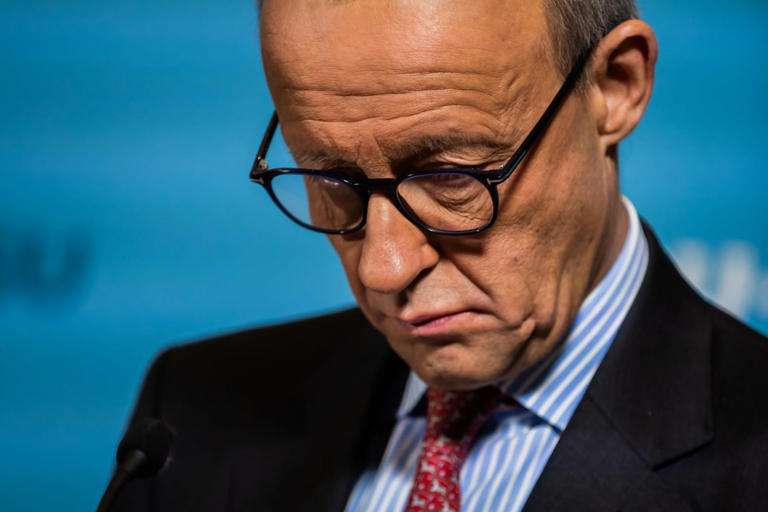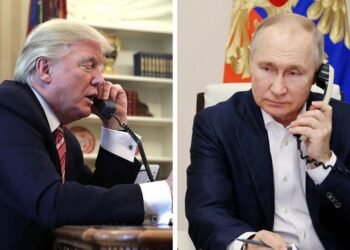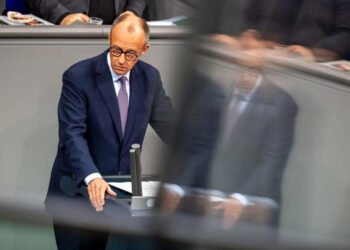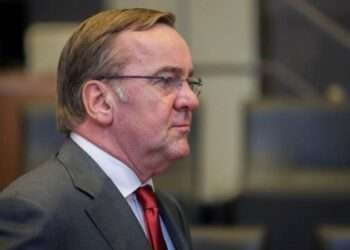Germany’s conservative opposition leader, Friedrich Merz has slammed Chancellor Olaf Scholz, describing his decision to delay a confidence vote until next year as “irresponsible.”
Following the sudden departure of the liberal Free Democrats (FDP) from his coalition, after Scholz sacked their leader as Finance Minister, the Chancellor suggested a vote of confidence in the lower house (Bundestag) for January 15, 2025.
If this fails as expected, given that Scholz no longer has a majority in parliament, a snap election would have to be held within 60 days after that, meaning elections are likely in March.
Merz, who leads the Christian Democratic Union (CDU), accused Scholz on Friday, November 8, 2024, of being steered by “party-political motives” after he declined calls for an immediate parliamentary vote of confidence following the collapse of his rocky three-way coalition government this week.
Merz stated that the “vast majority” of the German electorate agreed with his view that Scholz, who now leads a minority government with his Social Democrats and the Greens after the Free Democrats (FDP) party exited the coalition, was being “irresponsible.”
Sacked Finance Minister, Christian Lindner made similar accusations after his dismissal and has also called for an “immediate” vote of confidence and new elections. The far-right Alternative for Germany party has also opposed any delay.
Opposition parties and business groups want an immediate vote, which Scholz would likely lose, enabling elections to be held eight months ahead of schedule in January, a move that they say will minimise political uncertainty.
However, Merz, who met Scholz on Thursday, November 7, 2024, failed to convince the Chancellor to budge from his original plan of holding the vote on January 15, 2025, meaning new elections would not be held until the end of March.
Merz suggested that Scholz should combine a vote of confidence with a planned government statement that he is due to give in parliament on Wednesday.
The ZDF Politbarometer, an opinion poll, confirmed that 84 percent of Germans want an election as soon as possible. Some 54 percent want it to happen before Scholz’s projected timeline.
Scholz’s coalition fell apart on Wednesday, November 6, 2024, when years of tensions culminated in a row over how to plug a multibillion-euro hole in the budget, with the Chancellor sacking Finance Minister Christian Lindner, prompting the FDP to leave the government.
The Greens, Scholz’s only remaining coalition partner, have said little about the election timetable.
However, Greens leader Robert Habeck, the current Vice Chancellor, on Friday put himself forward as the party’s candidate for chancellor whenever new elections are held.
The break-up creates a leadership vacuum at the heart of the European Union just as it seeks a united response to the election of Donald Trump as United States president on issues ranging from Russia’s war in Ukraine to the future of the US-led NATO alliance.
Scholz Pledges To Work With Trump
Attending a meeting of European leaders in Budapest on Friday, Olaf Scholz pledged to work with Trump but stressed that the 27-nation European bloc must remain strong in light of conflicts in Europe and the Middle East.“One question is quite clear. Together as the European Union, as Europeans, we must do what is necessary for our security,” he said.
Eyeing the top job, Merz adopted a more strident tone, calling on Europe to take a tougher stance during the upcoming Trump presidency.
“This will make an impression in America,” he said on a talk show aired by a German public broadcaster.
He said that Europe must speak with one voice, stating, “Donald Trump is not impressed by weakness, only by strength, even opposition.”
This, he said, is how Europe could deal with the new government in Washington.
READ ALSO: KSM Criticizes Older Generation’s Failure to Build Inherited Foundations for Youth























